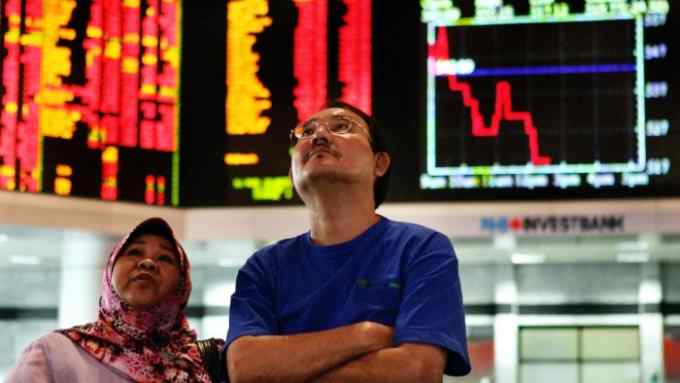Australia ETF assets surge to new record of A$150bn

Simply sign up to the Exchange traded funds myFT Digest -- delivered directly to your inbox.
Latest news on ETFs
Visit our ETF Hub to find out more and to explore our in-depth data and comparison tools
Assets in Australia’s exchange traded fund industry hit a new all-time record high of A$150bn ($102bn) in the first half of the year, according to a new Betashares report.
The new landmark in the domestic ETF sector is in stark contrast with the appetite for other locally domiciled fund products, including managed equities and open unlisted unit trusts, which have been hit by significant outflows.
Australia’s ETF industry has recorded a faster pace of growth than previously anticipated by Betashares, which forecast at the end of last year that the industry would reach A$150bn by the end of 2023.
The ETF provider now predicts ETF assets could surpass A$160bn by year end, despite ongoing uncertainties in local markets.

This article was previously published by Ignites Asia, a title owned by the FT Group.
About 70 per cent of the growth for the ETF industry over the first half of the year was due to market appreciation, although the report highlights that this means industry inflows also remained positive over the period.
Net new money for ETF products was at A$4.8bn over the first half of the year, although this was lower than the A$6.2bn booked during the same period last year.
This compared “very favourably” with Australian unlisted funds, which suffered A$23.4bn in outflows between January and May, according to the report, citing Morningstar data.
Betashares said the local ETF market was experiencing an “absolute/relative” story.
“On an absolute basis the industry is growing more slowly than the two years preceding this one, with investors being far more guarded about investment allocations,” according to Betashares.
Latest news on ETFs

Visit the ETF Hub to find out more and to explore our in-depth data and comparison tools helping you to understand everything from performance to ESG ratings
“On a relative basis, however, the Australian ETF industry has never been in a stronger position, particularly when compared to the unlisted active funds which have been plagued by outflows in recent times,” Betashares said in its report.
Betashares led domestic issuers during the first half, notching up about A$1.8bn in net inflows. It was followed by Vanguard, which attracted A$1.5bn, and BlackRock’s iShares, which gained A$1.1bn.
These three managers accounted for about 92 per cent of industry flows from January to June, according to the report.
As of end-June, there were a total of 339 exchange traded products listed on the ASX and Cboe offered by 44 issuers.
In line with global trends, fixed-income ETFs received the largest inflows at A$2.5bn, distantly followed by Australian equities ETFs that gained A$1.6bn and cash products with A$688mn in net inflows over the first half of 2023.
*Ignites Asia is a news service published by FT Specialist for professionals working in the asset management industry. Trials and subscriptions are available at ignitesasia.com.

Comments